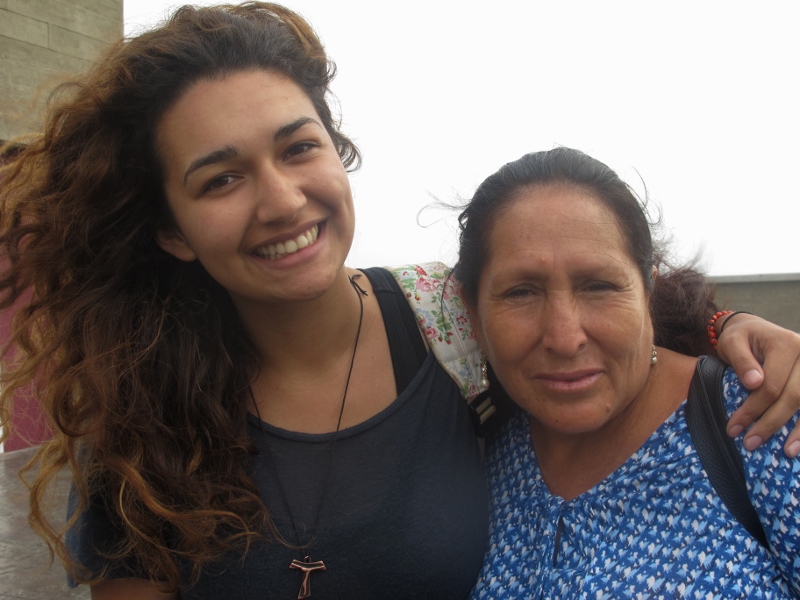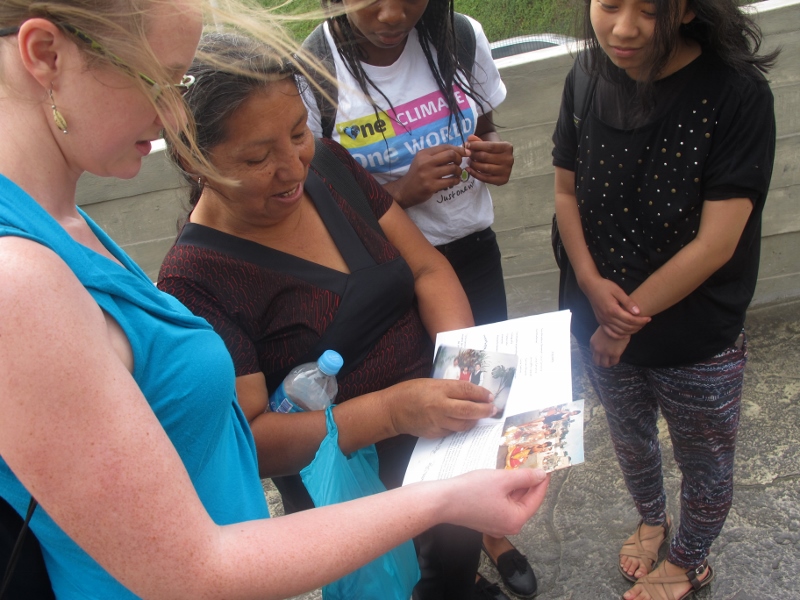Human rights: Dignified burials in Peru
Bea Findley travelled to Peru with CAFOD as part of the Step into the Gap programme, and in this blog explains how our partners are working on human right issues.

I’m writing this blog today because the political conflict in Peru feels like more than just history to me now; I have a real understanding of what the people went through and the difficulties of the recovery.
CEAS are the social action group of the Peruvian Bishop’s Conference. I met two women, Bernadina and Clotilde who receive support from CEAS in response to their suffering during the internal political violence which ended in 2000.
During that terrible time, approximately 70,000 people were killed or disappeared. 75% of these were from rural areas and 73% were speakers of the indigenous language, Quechua. A terrorist organisation called Sendero Luminoso (Shining Path) began the violence and the army responded with more violence.
There were horrific mistreatments of people and breaches of human rights: people were tortured, killed, displaced and disappeared. Both the Shining Path, the army and other armed groups were responsible. Nobody could be trusted.
With mass graves, burning of bodies and disappeared people, the right to a dignified burial was lost. For loved ones, this is understandably heart-breaking.
Speak out about human rights – become a campaigner with CAFOD
Of those who disappeared, most were never found. Only 16 years on, CEAS is one of the few organisations still searching and offering hope to those with lost loved ones.

We spoke to Clotilde, whose dad was a community leader and was disappeared. She told us of her long, difficult search for his remains and how CEAS gave her strength and hope. Clotilde wanted to know what happened to him and to bury him properly. She personally went on long, tiring treks in hope of finding something.
Who or what is a human rights defender?
Eventually, after much hard work from Clotilde and CEAS, her father’s remains were found and identified. With financial, emotional and psychological support from CEAS, Clotilde was able to bury her father. She said the funeral was “very beautiful” and that she is so grateful to have found her father. Clotilde also talked of the importance of not forgetting, and that justice has yet to be done with those responsible not having been prosecuted and with so many victims yet to be found.
Clotilde’s fight struck me. I had never considered the importance of dignified burial, both for the deceased and for their loved ones. In England, it always seemed to me the process happened almost automatically – it was never something I had to consider. Listening to Clotilde has helped me understand how important a dignified burial is, both to the deceased and to their families and friends in their recovery and grief.
Meet human rights defenders and share their stories on social media
Clotilde was a real inspiration to me, her willingness to share a story so raw and personal was brave and from the heart. Her honesty has really opened my eyes, and I feel so grateful and privileged to have heard such a powerful testimony of determination and persistence.
I’m writing this blog today because the political conflict in Peru feels like more than just history to me now; I have a real understanding of what the people went through and the difficulties of the recovery. This is all thanks to Clotilde and those at CEAS for sharing with us some of their toughest memories and emotions.